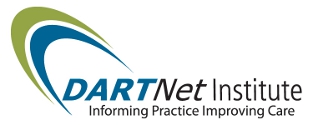Research > PeRson EmPowered Asthma ReliEf (PREPARE)
PeRson EmPowered Asthma ReliEf (PREPARE)
Elliot Israel, MD (Brigham and Women's Hospital), Principal Investigator
DARTNet's role: managing patient data collection including consent, randomization, and follow-up surveys
Project Overview: Patients with asthma typically use a reliever inhaler to ease symptoms such as wheezing or being out of breath. One way to prevent exacerbations is by using an inhaled corticosteroid, or ICS, each day. Many asthma patients donít do this, partly because they feel well enough without it and partly because they worry about overusing a medication they donít feel is necessary. A new strategy presents an alternative to using an ICS inhaler every day. With this approach, patients use the ICS inhaler at the same time they use their reliever puffer. This is called the Patient Activated Reliever-Triggered Inhaled CorticoSteroid (PARTICS) strategy.
This study aimed to answer the important question: Among African-American and Hispanic/Latino adults, can a PARTICS strategy in addition to provider education reduce exacerbations better than provider education alone?
The study recruited approximately 1,200 African-American and Hispanic/Latino participants age 18 years or older with asthma who are using an ICS or who have had an exacerbation in the past year. The patients were randomized to follow the PARTICS strategy in addition to receiving the education-enhanced care for asthma or just to receive provider-educated care. They completed monthly questionnaires for 15 months. The research team compared the number of exacerbations in both groups to determine which treatment strategy works better. The team also looked at days lost from work, symptoms, and asthma control.
Results: Black and Latinx patients who took inhaled corticosteroids when they used reliever medications, plus usual care, had fewer severe asthma exacerbations, improved asthma control, improved quality of life, and less days lost from work/school.
Read the Press Release (PDF)
Funding
Grant is funded by the Patient-Centered Outcomes Research Institute (PCORI) for a total of $13,857,788 over 5 years.

